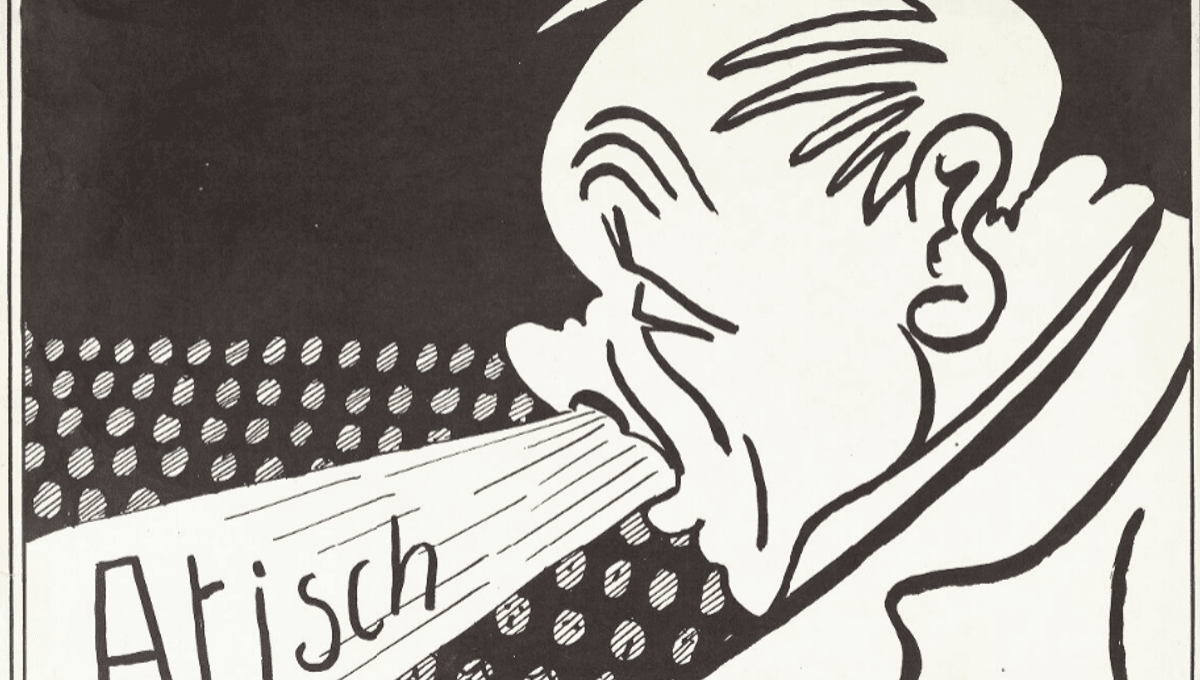
In most (but not all) cultures, it’s incredibly rude to ignore a sneeze – it has to be publicly acknowledged with a go-to response that everyone knows by heart. In English, the reply is almost always “Bless you!” But do you know the origins of why we say that when a room rings out with an a-choo?
There are several theories. One of the most commonly cited explanations claims “God bless you” has been used since the 14th century, when the Black Death was ravaging Europe, Asia, and North Africa. During this grim episode, a sneeze might have been seen as a menacing sign of the bubonic plague. Saying “God bless you” was thought to be a courteous plea for divine protection over the doomed and infirmed.
It’s a good story, but there’s not much written evidence to suggest it’s true. Besides, sneezing isn’t typically associated with the bubonic plague, which is better known for symptoms like red-hot fever, chills, strange swellings, and general ghastliness.
Another common explanation revolves around the superstitious idea that the soul can escape from the body during a sneeze. Saying “God bless you” served as a spiritual safeguard, warding off the devil from snatching the vulnerable soul. As beautifully explained by Milhouse in The Simpsons: “When you sneeze, that’s your soul trying to escape. Saying ‘God bless you’ crams it back in.” Once again, it sounds legit, but there’s not a lot of historical evidence to back it up.
For thousands of years, there has long been an association between sneezing and the feeling that something is brewing (and not just the onset of a common cold).
Many Roman and ancient Greek texts portray sneezes as omens from the higher beings. For example, in Homer’s Odyssey, there is a scene where Penelope speaks about the impending downfall of the suitors who have overrun her home. In the middle of her speech, her son Telemachus sneezes loudly. Penelope laughs, perhaps with relief or hope, and interprets the sneeze as a divine sign that her words will come true.
In other accounts from the ancient world, a sneeze is a sign that something chaotic and unpleasant is unfolding. Pliny the Elder, a famous writer of Ancient Rome, once wrote: “[W]itness the warnings drawn from lightning, the forecasts made by oracles, the prophecies of augurs, and even inconsiderable trifles – a sneeze, a stumble – counted as omens.”
Taken in this context, it’s possible that “bless you” evolved among English-speaking Christians out of a centuries-old concern that something evil was occurring and divine protection was needed.
Interestingly, “bless you” or a similar variation is not the standard response to a sneeze in most (perhaps the majority) of other languages and cultures. A huge number of languages say something akin to “Health!” or “Good health!”
In German, it’s “Gesundheit!” (meaning “health”). In Spanish, it’s salud (“health”). In Russia, it’s “будьте здоровы” (“be healthy”).
The French do things a little differently with “à tes/vos souhaits” (“to your wishes”), but the sentiment is very similar. Likewise, Turkish speakers will respond to a sneeze with “çok yaşa” (“live long”), to which people can respond: “And I hope you will be there to see it.” How sweet!
In some cultures, most notably Japan and Korea, it’s not common to even acknowledge when someone else sneezes. In fact, it’s more polite to imagine the shameful sneeze never happened.
Of course, most modern English speakers don’t actually expect a divine blessing when someone coughs, splutters, or sneezes. Like many phrases that have drifted far from their original meanings, “bless you” has evolved into a social ritual we perform without a second thought. What began as a hopeful plea for protection or a nod to superstition is now just a way of saying, “No worries, I see you,” in the chaos of everyday life.
Source Link: Achoo! Why Do People Say "Bless You" When You Sneeze?